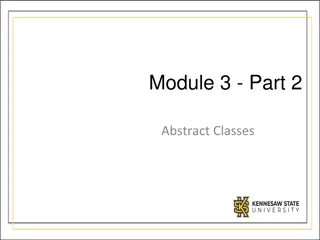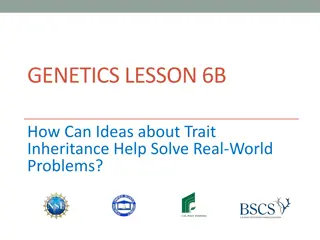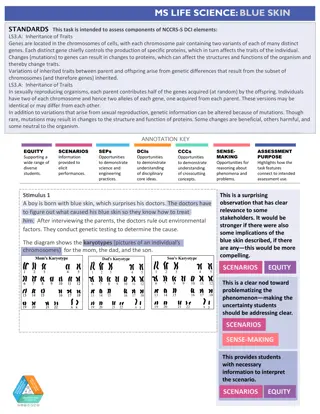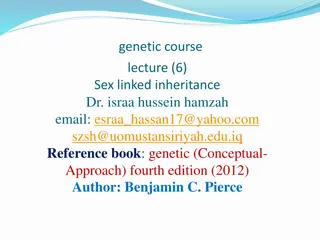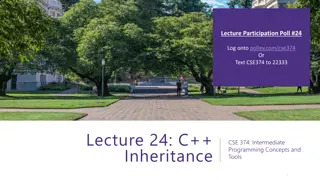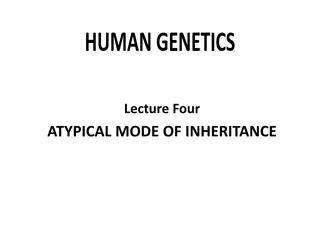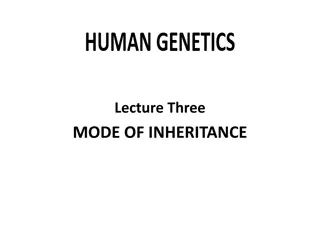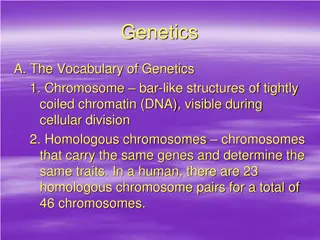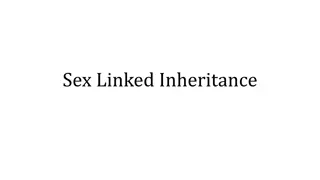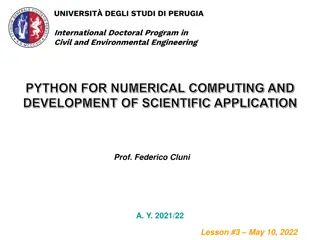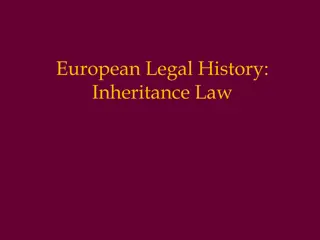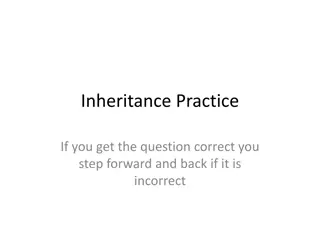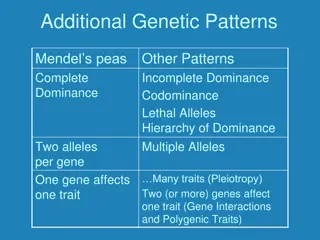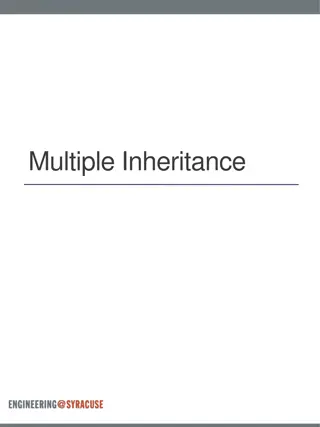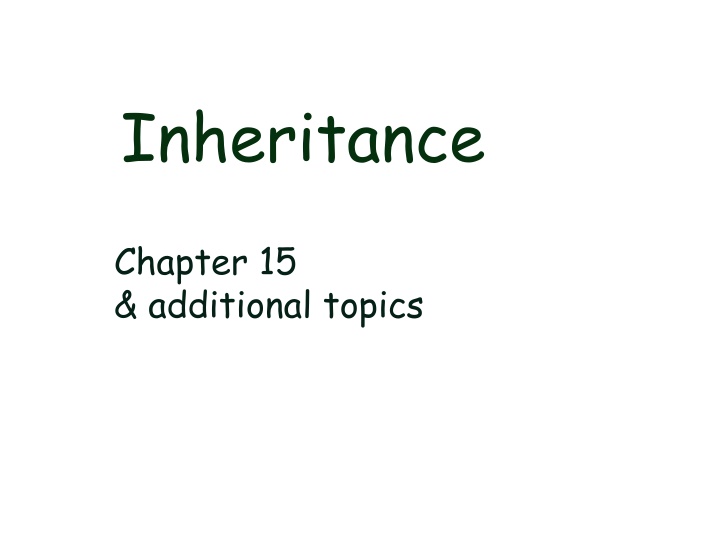
Inheritance in Object-Oriented Programming
Explore the concept of inheritance in object-oriented programming through examples of creating classes like Employee, HourlyEmployee, and derived classes. Learn how derived classes inherit member variables and functions from base classes while having the flexibility to add new elements.
Download Presentation

Please find below an Image/Link to download the presentation.
The content on the website is provided AS IS for your information and personal use only. It may not be sold, licensed, or shared on other websites without obtaining consent from the author. If you encounter any issues during the download, it is possible that the publisher has removed the file from their server.
You are allowed to download the files provided on this website for personal or commercial use, subject to the condition that they are used lawfully. All files are the property of their respective owners.
The content on the website is provided AS IS for your information and personal use only. It may not be sold, licensed, or shared on other websites without obtaining consent from the author.
E N D
Presentation Transcript
Inheritance Chapter 15 & additional topics
Overview Inheritance Introduction Three different kinds of inheritance Changing an inherited member function More Inheritance Details Polymorphism
Motivating Example: Employee Classes Design a record-keeping program with records for salaried and hourly employees Salaried and hourly employees belong to a class of people who share the property "employee" Salaried employee A subset of employees with a fixed wage Hourly employees Another subset of employees earn hourly wages All employees have a name and SSN Functions to manipulate name and SSN are the same for hourly and salaried employees
First define a class called Employee for all kinds of employees The Employee class will be used later to define classes for hourly and salaried employees
employee.h name ssn Employee net_pay Employee() Employee(string, string) print_check() get_name() get_ssn() get_net_pay() set_name() set_net_pay() set_ssn()
We now use Employee class to create an HourlyEmployee class
see book Display 15.3 hourlyemployee.h HourlyEmployee is derived from Class Employee HourlyEmployee inherits all member functions and member variables of Employee NOT SHOWN explicitly in HourlyEmployee s defn The class definition begins class HourlyEmployee : public Employee note that :public Employee shows that HourlyEmployee is derived from class Employee HourlyEmployee declares additional member variables wage_rate and hours
name ssn Inheritance a new class, called a derived class, is created from another class (i.e., the base class) A derived class automatically has all the member variables and functions of the base class A derived class can have additional member variables and/or member functions Employee net_pay Employee() Employee(string, string) print_check() get_name() get_ssn() get_net_pay() set_name() set_net_pay() set_ssn() is name ssn wage_rate hours HourlyEmployee net_pay Employee() Employee(string, string) set_rate() get_rate() print_check() get_name() get_ssn() get_net_pay() set_hours () get_hours () set_name() set_net_pay() set_ssn()
A derived class automatically has all the member variables and functions of the base class. But, the derived class might not have the same access rights as the base class when accessing those inherited members! (To be discussed soon )
Inherited Members A derived class inherits all the members (data members, functions) of the parent class The derived class should not re-declare or re-define a member function inherited from the parent unless The derived class wants to use the inherited member function for doing something different The derived class can add member variables & member functions
Display 15.3 hourlyemployee.h Only list the declaration of an inherited member function if you want to change the defn of the function.
Why re-define print_check() ? A practical concern here print_check will have different definitions to print different checks for each type of employee An Employee object lacks sufficient information to print a check Each derived class will have sufficient information to print a check
Implementing a Derived Class Any member function added in the derived class are defined in the implementation file for the derived class Definitions are not given for inherited functions that are not to be changed The HourlyEmployee class is implemented in HourlyEmployee.cpp Textbook Display 15.5 Textbook Display 15.5
We now use Employee class to create an SalariedEmployee class
Class SalariedEmployee salariedemployee.h The class SalariedEmployee is also derived from Employee Function print_check is redefined to have a meaning specific to salaried employees SalariedEmployee adds a member variable salary
salariedemployee.cpp Display 15.6 (1/2)
Display 15.6 (2/2)
Parent and Child Classes Recall that a child class automatically has all the members of the parent class The parent class is an ancestor of the child class The child class is a descendent of the parent class The parent class (Employee) contains all the code common to the child classes You do not have to re-write the code for each child Employee SalariedEmployee HourlyEmployee
Parent and Child Classes (contd) An hourly employee is an employee An object of type HourlyEmployee can be used wherever an object of type Employee can be used An object of a class type can be used wherever any of its ancestors can be used An ancestor cannot be used in a place where one of its descendents is expected void fun1(Employee x); void fun2(HourlyEmployee y); int main() { Employee a; HourlyEmployee b; fun1(a); //correct fun1(b); //correct fun2(a); //incorrect fun2(b); //correct } public inheritance is an is-a relationship
Derived Classs Constructors A base class s constructor is not inherited in a derived class The base class constructor can be invoked by the constructor of the derived class The constructor of a derived class begins by invoking the constructor of the base class in the initialization section: HourlyEmployee::HourlyEmployee : Employee( ), wage_rate( 0), hours(0) { //no code needed } Call a constructor for Employee
Default Initialization If a derived class constructor does not invoke a base class constructor explicitly, the base class default constructor will be used automatically If class B is derived from class A and class C is derived from class B When a object of class C is created The base class A's constructor is the first invoked Class B's constructor is invoked next C's constructor completes execution
Private is Private A member variable (or function) that is private in the parent class is not directly accessible by the member functions in the child class This code is illegal as net_pay is a private member of Employee! void HourlyEmployee::print_check( ) { net_pay = hours * wage_rage; } The parent class member functions must be used to access the private members of the parent A member function of a class can NOT directly access its own member variable (inherited, private to its base class)!
The protected Qualifier protected members of a class appear to be private outside the class, but are directly accessible within a derived classes If member variables name, net_pay, is listed as protected (not private) in the Employee class, this code becomes legal: HourlyEmployee::print_check( ) { net_pay = hours * wage_rage; access_specifiers_demo.cpp
Using protected or not? Using protected members of a class is a convenience to facilitate writing the code of derived classes. Protected members are not necessary Derived classes can use the public methods of their ancestor classes to access private members Many programming authorities consider it bad style to use protected member variables
Overview Inheritance Introduction Three different kinds of inheritance Changing an inherited member function More Inheritance Details Polymorphism
Three different ways for classes to inherit from other classes: public, private, and protected. // Inherit from Base publicly class D1: public Base { }; // Inherit from Base privately class D2: private Base { }; // Inherit from Base protectedly class D3: protected Base { }; class D4: Base // Defaults to private inheritance { }; If you do not choose an inheritance type, C++ defaults to private inheritance (just like members default to private access if you do not specify otherwise).
Public inheritance // Inherit from Base publicly class D1: public Base { }; All members keep their original access specifications. Private members stay private, protected members stay protected, and public members stay public. public inheritance Base class access specifier Derived class access specifiier (implicitly given) Directly accessible in member functions of derived class? yes Directly accessible in any other code? public public yes private private no no protected protected
Private inheritance // Inherit from Base privately class D2: private Base { }; All members from the base class are inherited as private. private members stay private, and protected and public members become private. This does not affect that way that the derived class accesses members inherited from its parent! It only affects the code trying to access those members through the derived class. private inheritance Base class access specifier Derived class access specifiier (implicitly given) Directly accessible in member functions of derived class? Directly accessible in any other code? public private yes no private private no no protected private yes no
Protected inheritance // Inherit from Base protectedly class D3: protected Base { }; Rarely used. The public and protected members become protected, and private members stay private. protected inheritance Base class access specifier Derived class access specifiier (implicitly given) Directly accessible in member functions of derived class? yes Directly accessible in any other code? public protected no private private no no protected protected yes no
Member functions of a derived classes have access to its inherited members based ONLY on the access specifiers of its immediate parent, not affected by the inheritance method used! Base class access specifier for members Derived class access specifiier (implicitly given for inherited members) Directly accessible in member functions of derived class? Directly accessible in any other code? public inheritance public public yes yes private private no no protected protected yes no private inheritance public private yes no private private no no protected private yes no protected inheritance public protected yes no private private no no protected protected yes no
Overview Inheritance Introduction Three different kinds of inheritance Changing an inherited member function More Inheritance Details Polymorphism
Redefinition of Member Functions When defining a derived class, list the inherited functions that you wish to change for the derived class The function is declared in the class definition HourlyEmployee and SalariedEmployee each have their own definitions of print_check Next page demonstrates the use of the derived classes defined in HourlyEmployee.h and SalariedEmployee.h.
Functions defined in Employee class set_name() set_ssn() print_check() Functions defined in HourlyEmployee class set_rate() set_hours() print_check()
Redefining vs. Overloading A function redefined in a derived class has the same number and type of parameters The prototype (return value, function name, and parameters) of the function in the derived class must be exactly identical to that in the base class. The derived class has only one function with the same name as the base class An overloaded function has a different number and/or type of parameters than the base class For example, the derived class has two functions with the same name as the base class: one is overloading, one is redefining. void set_name(string first_name, string last_name);//overloading void set_name(string new_name); //redefine
A side note: function signatures An overloaded function has multiple signatures A function signature is the function's name with the sequence of types in the parameter list, not including any const or '&' Some compilers allow overloading based on including const or not including const
Change access specifier for an inherited member (data or function) When re-define a function in a derived class, The re-defined function uses whatever access specifier it is given in the derived class The re-defined function does not inherit the access specifier of the function with the same prototype in the base class. Therefore, You can hide an inherited member (originally public in base class) by specifying it as private You can expose an inherited member (originally protected in base class) by specifying it as public However, you can only change the access specifiers of base members the class are accessible in the derived class. You can never change the access specifier of a base member from private to protected or public, because derived classes do not have access to private members of the base class.
Access to a Redefined Base Function When a function of a base class is redefined in a derived class, the base class function can still be used To specify that you want to use the base class version of the redefined function: int main() { HourlyEmployee sally_h; sally_h.Employee::print_check( ); }
Adding new functionality to an inherited member function See derived_changes_inherited_members.cpp file. void Circle::display() { Shape::display(); cout << "Calling Circle's display() ...\n"; }
Hide the functionality of an inherited member function Hide the functionality of an inherited member function from any other code. Redefine the member function (discussed before) Or, give it a new access specifier private when re-defining it in the derived class. Or, simply list it in the private section like this: class Circle : public Shape() { private: Shape::display; //display() is a function defined as public in Shape without even re-defining it. See derived_changes_inherited_m embers.cpp file
Expose an inherited member (originally protected in base class) Read this file derived_exposes_inherited_members.cpp stopped here 4/4.
Overview Inheritance Introduction Three different kinds of inheritance Changing an inherited member function More Inheritance Details Polymorphism
Some special functions are not inherited by a derived class. They include The assignment operator Copy constructors Destructors

